|
CIRCUIT
CLOUTS
Home of
the United League · Purveyors of
Fine Fake Baseball Since 1951* |
|
|
|
|
|
|
|
|
SEASON HIGHLIGHTS
|
|
1. Cleveland won its third
East Division pennant to return to the World
Series for the first time since 1967.
Chicago won its third pennant in four years, and
ninth overall, in a tightly-contested race with
Los Angeles and Atlanta.
2. Joe Torre had
his worst season in nearly a decade, but
still won his fifth batting title, edging out
Gray Sox sophomore Steve Garvey and St. Louis' Graig Nettles.
3. Orlando Cepeda won his
record fourth home run title and became the
first player to win HR and RBI titles in
successive seasons.
4. It was the second
lowest scoring season in league history (8.164
runs per game), second lowest home run rate,
lowest OBP and OPS, and home runs were down 16
percent.
5. Home Sweet Home. Home teams won 57
percent of all games, smashing the league
record. Four teams won at least 50 home
games, a feat no team had accomplished since
1969.
6. League attendance jumped 6.6
percent, topping 28 million, making 1973 the
most profitable UL season since 1968.
7. Doug Aiton completed his 15th
season as Washington GM, won his 1,000th game,
and scored his 10,000th run.
|
|
ON THE MEND |
|
CHI
|
MR Rich Folkers (5-6 mo)
SP Dave Boswell
(4-5 mo)
SP Stan Bahnsen
(8 wk)
MR Gene Garber (7 wk) |
|
CLE
|
--- |
|
|
min 2 weeks
new injury |
|
ATL
|
2B Joe Morgan (career) |
|
BOS
|
SP Jerry Koosman (10-11 mo)
MR Mike Kekich
(11 mo) |
|
BRO
|
SP Ernie McAnally (8 mo) |
|
DAL
|
--- |
|
DET
|
--- |
|
LA
|
2B Dick Howser (9-10 mo) |
|
MAN
|
--- |
|
STL
|
MR Chuck Hartenstein (6-7 mo) |
|
SF
|
--- |
|
WAS
|
--- |
|
|
min 6 months
new injury |
|
|
|
| TRADES |
August 1 (284)
BROOKLYN gets
WAS '74 3rd round pick
WASHINGTON gets
MR Joe Hoerner
August 1 (285)
DETROIT gets
LF Willie Stargell
MANHATTAN gets
$1 cash
August 1 (286)
BOSTON gets
WAS '74 2nd round pick
WASHINGTON gets
MR Milt Wilcox
August 1 (287)
CHICAGO gets
3B Al Gallagher
MANHATTAN gets
CHI '74 4th round pick
CHI '75 3rd
round pick
August 1 (288)
BOSTON gets
SP Roric Harrison
MANHTTAN gets
SP Craig Swan
August 1 (289)
BOSTON gets
SP Frank Reberger
C Buck Rodgers
CLEVELAND gets
SP Mike Cuellar
BOS '74 3rd round
pick
|
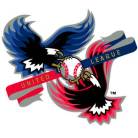 |
|
|
Colts, Barons Prepare for
'65 Rematch
L.A. Falls Short, Cleveland
Ends Washington's Reign
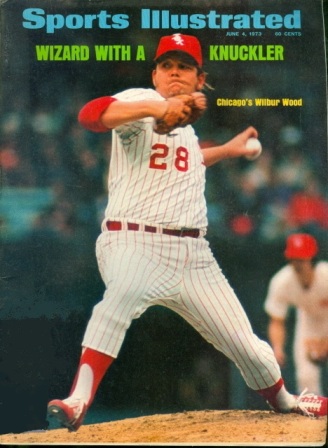 CHICAGO (Oct. 1)
- Wilbur Wood shut out Atlanta 2-0 on the next-to-last
day of the season, setting up a rematch of the 1965 UL
World Series with the Cleveland Barons. It is
Chicago's ninth division pennant--just one behind the
Brooklyn Superbas' record--and third in four seasons.
Cleveland clinched their third East Division crown on
Sept. 26 and finished four games ahead of the Washington
Monuments, ending their run of three straight pennants
from 1970-72. CHICAGO (Oct. 1)
- Wilbur Wood shut out Atlanta 2-0 on the next-to-last
day of the season, setting up a rematch of the 1965 UL
World Series with the Cleveland Barons. It is
Chicago's ninth division pennant--just one behind the
Brooklyn Superbas' record--and third in four seasons.
Cleveland clinched their third East Division crown on
Sept. 26 and finished four games ahead of the Washington
Monuments, ending their run of three straight pennants
from 1970-72.
Chicago was the league's #1
pitching team, led by ace Bill Singer (20-9, 2.84), who
turned in the league's first 20-win season since 1969,
and a bullpen with three relievers with ERAs under 2.00.
The Colts defied predictions that St. Louis and Los
Angeles would ascend to the West Division mantle, but
the Maroons revamped offense completely fizzled and the
Outlaws fell just short with their fifth second place
finish in eight years. Los Angeles finished second
in the league without earning a playoff appearance, just
as they did in 1971, a situation that will be corrected
by next year's expanded playoff format.
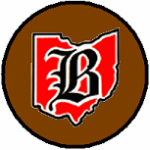  The
Wonder Twins World Series The
Wonder Twins World Series
Colts-Barons series
should take the form of a pitchers’ duel
by Lance Mueller
Even
those taking the most cursory of glances at the 1973 UL
stat sheet would have to come away a little amazed at
the similarities between the two teams facing off in
this season’s championship series. On the pitching side,
a mere .17 difference in team ERA (and that shrinks to
.10 when comparing starters), a .10 difference in
opponent average, only 18 more walks allowed by the
Barons, and only 20 fewer runs allowed by the Colts.
Things were much the same on the offensive side of the
ball: a .03 difference in OBP, .10 difference in OPS,
only 6 additional homers hit by the Colts, while the
Barons scored a mere seven more runs then their West
Division counterparts. Both teams' young, lefty first
basemen drove in exactly 99 runs, and both saw their
veteran sluggers suffer through injury plagued seasons
which resulted in almost identical outputs – Demeter 13
HRs/42 RBIs, Maris 12/44. Slap a pair of glasses on the
Barons’ GM and shave 30 or 40 pounds off the Colts’ GM,
and the general managers would even look a bit like each
other. All in all, this year’s Series shapes up to be an
oddsmaker's nightmare.
Attendance Up, Scoring Down
UL clubs set a league attendance record , drawing 28.3
million fans to UL ballparks, an increase of 6.6 percent
over last year's total, and an average of over 29,000
per game. Cleveland led the pack with 2,953,009,
and for the first time nine clubs drew over 2 million
fans. Last place Brooklyn surprisingly set an
attendance record of 2,937,719, Washington fell just
1600 shy of a club record, and San Francisco was 5,000
short of its second 2 million-fan season.
UL
clubs earned $64 million in profits, the most black ink
since 1968. Only Dallas failed to turn a profit,
and they only missed by $1.7 million. The top
performers in terms of dollars per win improvement, were
the two New York clubs. Brooklyn sliced its
payroll $10 million but managed to win nine more games
that last year and increase its revenues by $10 million,
while Manhattan chopped a whopping $17 million from its
payroll and had virtually the same record as last year.
The worst performers, in dollars per win terms, was San
Francisco. The Spiders spent $5 million more than
last year and won eight fewer games.
Awards
Voting Results
Most
Valuable Player
45 - Orlando Cepeda, BOS
34 - Joe Torre, ATL
22 - Dick McAuliffe, BRO
21 - Carl Taylor, CHI
16 - Ken Henderson, LA
11 - Cecil Cooper, CLE
8 - Sal Bando,
ATL
8 - Rod Carew, DAL
3 - Carlos May, CHI
1 - Rico
Petrocelli, BOS
1 - Graig Nettles, STL
|
Cy
Young Award
63 - Larry Dierker, LA
33 - Bill Singer, CHI
24 - Jon Matlack, STL
19 - J.R. Richard,
CLE
14 - Fritz Peterson, LA
8 -
Don Wilson, WAS
6 - Rick Reuschel, CLE
1 - Tex Clevenger, BOS
1 -
Fergie Jenkins, SF
1 - Harry Parker,
CHI
|
Rookie of the Year
47 - Gary Thomasson, LA
36 - Steve Rogers, MAN
28 - Doc Medich, STL
19 - Jorge Orta, CLE
18 - Mike Schmidt,
BRO
11 - Ken Griffey, MAN
5 - Don
Hood, SF
4 - Brian Downing, DET
2
- Elias Sosa, BRO
|
|
|
|
|

|
Record:
95-67
(+1)
9th in Batting -
1st in Pitching
Stud:
Bill Singer (20-9, 2.84)
Dud:
Pete Ward (.204-8-32)
Top Rookie:
Gene Garber (5-3, 2.23), Jerry Janeski (6-1,
2.67)
“Mr.
Wizard?” No, More Like “Tooter Turtle”
Whether or not you believe he plays with dolls is
irrelevant. Lance Mueller’s Colts are the baddest team
in the league. This I know, for the standings tells me
so. So here they come with this “evenly matched” idea,
possibly trying to lull Cleveland into hoping for a tie.
On the bright(er) side, the only post season “magic”
Lance’s been able to conjure was a brilliant
come-from-behind Series against the Barons. But make no
mistake, this time the Colts are the favorites,
finishing six games stronger than the Barons, and in a
much tougher division, and the number one pitching staff
to boot...
Lance: Arm Strong
Bill Singer was the league’s only 20 game winner, and
has built a strong case for defending his 1972 Cy Young
Award. On his heels is Wilbur Wood, who matched last
season’s career high win total with 14 while finishing
in the top 10 in ERA. That these two are fronting the
UL's sharpest staff is no surprise, the magic happened
with the rest of the help. Dave Boswell, Bill Parsons
and Stan Bahnsen all nailed down outstanding
performances in the 3-5 spots. Bahnsen, in particular,
was on fire (11-1, 2.03) before a shoulder injury
sidelined him. Also shouldering his time on the DL,
Boswell will not get the chance to pitch against his old
team. Jerry Janeski excelled in his opportunity as
fill-in starter. And puns can’t describe the excitement
Bob Friend must be feeling to return to the scene of his
initial World Series appearance in 1965, the year he was
traded from the Colts to the Barons, then went on to
face his old team in October. With mixed results.
Bull Penis Mightier Than The Sword
Starter’s tired or just bored? No problem, Chicago’s
relievers are the best going, when they’re going.
Mueller’s faith in Giusti was Giustified. Harry Parker’s
sporting career numbers, and may be Closer heir apparent
to a possibly overworked Bob D. Johnson. Gene Garber and
Rich Folkers were valued contributors until injury cast
them aside. Bill Laxton and Joe Decker were excellent as
an injury fill-ins.
Taylor May’d Offense
This could be the last best chance at a ring for the
legendary Hank Aaron, the one milestone that has eluded
him [ed. note: Aaron won a ring with the Louisville
Colonels in 1958]. Roger Maris and Felix Mantilla may be nearing the
end of their careers, but each has hit postseason paydirt thanks to Glen Reed. But it’s youngsters Carl
Taylor and Carlos May, along with speedy table setter
Amos Otis that will carry this team through some
possibly lean prospecting years. All-Star catcher Taylor
finished 2nd in the league in BB(104) and OBP (.417),
first baseman May banged in a team (and career)
high 99 RBI, but saw significant decreases in the
“percentage” categories. Otis again proved to be one of
the greedier of UL thieves, swiping a cool 50. Along
with Toby Harrah and Merv Rettenmund and when and if
Andre Thornton comes around, this could be a solid
nucleus for a long time. In the meantime, Hank, Roger
and Felix could tip the Series scales if they can
conjure up some of the old magic.
|

|
Record:
89-73
(+10)
8th in Batting -
2nd in Pitching
Stud:
J.R. Richard (14-12, 2.41, 249K)
Dud:
Tim McCarver (.215-0-12)
Tom Performance:
Jorge Orta (.280-9-61, 20 SB)
Cleveland: Baron Arms (and a little bit more)
Despite of series of trades throughout the ’73 season
that saw talented hurlers leaving town in exchange for
much-hoped-for offensive punch (for now and the future),
it was once again the Barons stellar pitching that
finally found their way back to the fall classic. Much
of that success of the league’s #2 staff had to do with
the emergence of youngsters "Big Daddy" Rick Reuschel
(17-7, 2.66) and Burt "Who Give’s A" Hooton (15-8 3.35),
as well as the continued rise of fireballer J.R.
Richards (14-12, 2.41, 249 Ks), all of whom helped make
up for subpar performances by one-time Cy winner Jim
Palmer and trade target Mike Cuellar. The bullpen was
also extremely strong, sporting a tiny 2.84 ERA and
anchored by their star-in-the-making closer, Steve
Mingori (28 saves, 2.13).
It wasn’t just the young hurlers that made a big
splash this year, there were also some (gasp, dare we
say it) offense stars for the Barons as well. Mostly
notable was third year first baseman Cecil Cooper who
belted 28 dingers, drove in 99 runs and notched a .498
slugging percentage (all good for the #4 spot of the
UL’s year end leader board). Sophomore corner
outfielders Jorge Orta and Ben Oglivie also made strong
contributions to the Barons’ offensive side. Each
knocked in 50+ runs, while Orta carried 76 runs across
home plate, second on the team to Cooper. Despite
expectations of a power surge for veteran slugger Don
Demeter, it was the other guy in that early season
trade, Ron Hunt, who helped his new squad the most,
chipping in 77 RBIs from the shortstop position. Even
though the Barons’ batting average was nearly identical
in 1972 and 1973, the team managed to score 69 more runs
this season due mostly to an upswing in overall power.
Cleveland also turned around their run differential from
-24 in 1972 to +72 a year later, and the 96-run swing
made a world of difference in a league that continues to
increasing populated by stellar pitchers.
While 1973 saw the Brown and Orange
pitchers hold strong and steady as the #2 staff in the
UL, it was the teams rise for the league’s worst hitting
team in 1972 to #8 overall a year later that made it
known that they could do more than just hold their
opponents offenses down. It was the better mix from both
sides of the ball that proved to be the difference maker
in ’73, helping the Barons land their third East
Division pennant. Now it’s time to find out if they’ve
got the right combination to finally bring the UL title
home to Cleveland.
|
|
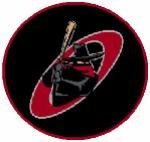
|
Record:
92-70
(+14)
3rd in Batting -
3rd in Pitching
Stud:
Larry Dierker (18-11, 2.30)
Dud:
Ted Sizemore (.227-0-32)
Top Rookie:
Gary Thomasson (.257-19-60)
Unlucky LA
This may have been
the best Outlaw team ever assembled but also the least
lucky. Based on the UL power rankings the Outlaws
should have finished with an additional 4 wins making
them the second unluckiest team after the
Superbas. To make matters worse they were competing
with the luckiest team this year (Atlanta) and the
second luckiest (Chicago). If all went as statistically
predicted the year would have ended with the Outlaws 4
games up in the win column instead of 3 games back.
Anyway the team has had a good cry over it and is
preparing for next year.
Pitching
The team finished 3rd in pitching with 3 starters
finishing in the top 10 in VORP. The 4th best starter
on the team is Dave Roberts who finished in the top 20
in VORP and had 17 wins. While Singer in Chicago won 20
games, the Cy Young this year is easily Larry Dierker.
He led the league in ERA, VORP and had 18 wins to his
name including 5 shutouts and 19 complete games. Voting
against him would be a joke. The pen was also very
solid and youngster Pedro Borbon had 30 saves and a 1.87
ERA.
Hitting
As with
pitching, the team finished 3rd in hitting as well.
Santo and Ken Henderson were in top 10 in VORP.
Epstein led the team in RBIs with 95 and in general
Outlaws were present all over the leader boards. The
big surprise on offense was rookie Gary Thomasson who at
just 21 years old anchored center field for most of the
season. He had 101 walks for the year and showed power
with 19 homeruns, toss in 15 steals and he was an all
around performer. While many thought he was simply
keeping a seat warm for Dave Windfield the kid proved he
could be an elite outfielder in this league.
Closing
It was a tough year to watch but
a good one to build from. The rotation will return in
tact and Niekro and Roberts will be on board for a full
year. The lineup largely stays the same. Mainly the
team loses some depth and veteran leadership in Curt
Flood and Dick Howser but if we have some cash then they
will be replaced in FA. We are excited to see how
expansion will change the composition of the West and
with no picks in round 1,2 or 3 in this years draft we
are simply buckling down till opening day.
|
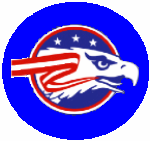
|
Record:
85-77
(-4)
6th in Batting -
4th in Pitching
Stud:
Don Wilson (19-7, 2.35)
Dud:
Dave Cash (.238-1-30)
Top Rookie:
Jim Colborn (5-5, 2.37)
On paper, the '73 Washington Monuments looked just like
the pennant-winning '72 Monuments, and '71 Monuments,
and the '70 Monuments, except with Frank Robinson
added. What could go wrong?
As the dream of a
four-peat was ended by a runaway Cleveland side, it's
worth reflecting that '70 now represented a
high-watermark in many of the side's careers. While
like a fine wine, Don Wilson gets better with age, like
a cheap cider, the rest rot. Rookies like Fosse and Cash
who had a standout debut campaign have never seemed the
same since, and alongside Gene Alley, the three have
become black holes in the batting order, hitting .238,
.245 and .215 respectively. For a while Fosse looked
like the next Joe Torre, and Cash the next Grammy Hamner;
now they look like the next Johnny Romano and Ron Hansen
(Mons fans take note!).
Yet not all is blue. Don
Wilson came back strong and won 19, Clay Kirby looks
like the next in the long line of good pitchers coming
through the ballclub, Carbo and Blomberg both topped 20
homers (not easy in Griffith Stadium). For three
months, Johnny Podres rolled back the years and looked a
dominant ace, before he broke down, earning a new
contract into the bargain. More than that, the
ballclub remains surprisingly young, with almost all
it's key players under 29, and not quite at the point
where finances will break up the team. But whither a
middle-infielder that can hit?
|
|
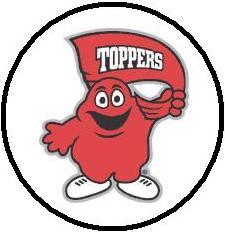
|
Record:
89-73
(+2)
1st in Batting -
10th in Pitching
Stud:
Joe Torre (.324-27-98)
Dud: Roy
Foster (.249-19-55)
Top Rookie: Kurt Bevacqua
(.267-3-34)
The
Hilltoppers take pride in bringing the good baseball
fans of Atlanta an exciting, offense oriented brand of
ball and on that front we succeeded yet again. However,
baseball is about winning pennants and I won't be
satisfied until we are at the top of that hill once
more.
Our starting pitching is (I feel somewhat
unjustly) maligned. We have a lot of solid middle of
the rotation type guys. We do lack a true ace, and to
that end we negotiated to try to bring Phil Niekro here
at the deadline, but LA put together a great package and
I just didn't feel like we could match it.
Torre
is still formidable, Bando is a machine like and I
believe Gamble is just beginning to come into his own.
We tried Geronimo in centerfield to try to shore up the
outfield defense, but he didn't hit like we hoped.
Freehan started the year like a house of fire, but I
think the wear and tear behind the dish slowed his bat
down a little by the end of the campaign. Finally the
tragic career ending injury to Little Joe Morgan pretty
much finished our pennant hopes. Kurt Bevacqua is a
scapper, but he just doesn't have Morgans legs or that
kind of pop in his bat. We are focused on acquiring a
front line pitcher, we have some surplus offense to
offer in a deal, and we hope Dave Parker is gonna give
the middle of our lineup even more thunder.
We
are convinced 1974 is a return to the promised land.
|
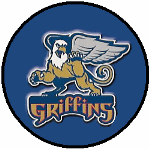
|
Record:
82-80
(-2)
2nd in Batting -
7th in Pitching
Stud:
Bobby Grich (.271-22-83)
Dud:
Dick Allen (.243-18-58)
Top Rookie:
Brian Downing (.267-12-46)
The Flyin' Lions posted a winning record and finished
within shouting distance of the division leaders for a
fourth straight year in 1973. That is either a solid
achievement, or a disappointment for a team that seems
to be perennially on the verge of doing something big.
In prior years, at least one pundit tabbed them for the
division title, but first Joey Jay and then Pete Ramos
regressed badly and all bets were off. It was much the
same in 1973, when new ace Dock Ellis looked like he
might be able to lead the mythic creatures to the
baseballing promised land; unfortunately, Ellis managed
only 10 (brilliant) starts in a season marred by injury.
Funny that pitching should be the problem in an era so
rich in hurlers, but it is undeniably true that Griffin
management has been remarkably good at acquiring hitting
talent, but has had much less success on the pitching
front. Indeed, continuing with the theme of four
straight years, 1973 once again saw the Griffs finish
with an above average offense and below average pitching
staff. But perhaps help is on the way--Detroit sports
two top-10 pitching spects, who may be ready for the
bigs next year after making the briefest of appearances
in the majors at the end of the season.
While
pitching has been problematic, scoring runs has not. The
slugging core of Bonds-Allen-Jackson-Grich was
supplemented in 1973 by the free agent acquisition of
Tony Perez, who produced more than fifty extra base hits
and a hundred ribs at the hot corner. The team also
drafted slugging catcher Brian "Go" Downing in the first
round. Another notable draft success was the late-round
swoop of talented corner OF Otto Velez. Recently
departed GM John Horsch even acquired tubby lefty poker
Willie Stargell for a laugh. Some teams can't buy a
hitter; Detroit has more than they can possibly use. Add
it all up and you get a bunch of runs scored, a sizable
Pythagorean underperformer, and a lump of coal in your
stocking come playoff time. Perhaps a new GM, a full
season of Dock Ellis, and the call-up of some talented
pitching spects can reverse the curse in '74. Certainly,
the team looks to be one of the biggest beneficiaries of
the switch to a four-team playoff format--the Griffs
don't have to clear that final hurdle and actually win
the division, just keep on keepin' on and they could
well manage the first-ever playoff appearance in
franchise history. (Boston and Dallas are the league's
only other franchises to have never played a postseason
game.)
|
|
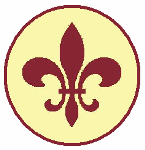
|
Record:
76-86
(-14)
12th in Batting
- 5th in Pitching
Stud:
Jon Matlack (19-12, 2.57)
Dud:
Dave LaRoche (4-12, 4.39, 5 SV)
Top Rookie:
Doc Medich (12-13, 3.01)
There was no fairytale ending in the last year of GM
Timothy J. Smith’s 23-year tenure as skipper of the St.
Louis Maroons. In fact, the 1973 season will go down as
perhaps the most disappointing in the history of the
ballclub.
Expectations were sky high
heading into the season. The Maroons finished a close
second last year and added 2B Dick Howser, RF Rick
Miller, and C Ellie Rodriguez to what was already the
league’s #2 offense. The callup of pitching sensation
Doc Medich bolstered a solid young pitching staff. All
the pieces were a place for a final run at the West
Division pennant to send Smith out West in a blaze of
glory. Then the season began...
A 16-12 April saw the Maroons in a three-way pack atop
the division, but by the end of May the Maroons had
plummeted to fifth place with slugger Boog Powell and
the newly-acquired Howser on the shelf with injuries.
At the All-Star Break, the Maroons were 9½ games back,
still in fifth, and had the league’s worst
offense--surely a temporary condition the club would
break out of in the second half. But the end of the
collective hitting slump never came, and St.
Louis--hyped in the preseason as the best hitting team
in the league--finished the year dead last in runs for
the first time in club history. Reggie Smith, coming
off a career year (.281-34-114), saw his power numbers
cut by a third and his OPS drop 150 points, Boog Powell
and Mickey Mantle spent a third of the season injured
and drove in just 57 and 38 runs, respectively, Jim
Fregosi had his lowest OBP in nine years, and Howser was
a flop, hitting just .248-0-10 in 35 games before a
herniated disc and a trade to Los Angeles.
The starting pitching was
effective, as expected. Medich had a great rookie
season, posting a 2.75 ERA in 32 starts;
Jon Matlack was 2nd in wins (tied) and VORP and 4th in
ERA, and Dave Roberts was 11-3, 2.97 in 22 starts before
he was shipped off to L.A. for C Darrell Porter and a
first round draft pick. The bullpen, however, was a
different story. Last year’s closer of the year, Dave
LaRoche, went from a 1.34 ERA and 41 saves to a 4-12,
4.39 and just five saves in 64 games. His supporting
cast was no better. Danny Coombs (4.47), Jim Barr
(5.55), and Roger Moret (7.04). Bob Locker stepped back
into the closer role down the stretch, compiling 22
saves (17 in the second half), but the bullpen still
finished the season with the worst ERA in the league.
The league’s second worst defense didn’t help matters.
Fregosi led the league with 18 shortstop errors and
Mantle misplayed 30 balls at first base.
Smith leaves Sportsman’s Park
with two UL championship trophies (1951 and 1969), a
divisional pennant (1957), nine second place finishes,
1,864 wins and a .514 winning percentage. Next stop:
Denver.
|
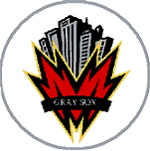
|
Record:
78-84
(-1)
7th in Batting -
8th in Pitching
Stud:
Steve Garvey (.317-15-62)
Dud:
Carl Yastrzemski (.190-6-25)
Top Rookies:
Steve Rogers (13-8, 2.85), Ken Griffey
(.323-6-30)
'73 was a year of transition
at Yankee Stadium, with superstars of a previous era
leaving town, and a promising crop of rookies beginning
to prove themselves in the Bigs. When all was said and
done, the Gray Sox finished a few games below
.500 -- about where they have the past few years, but
with a much reduced payroll, which bodes well for the
potential of seasons to come.
Out with the old:
Willie Stargell, Vada Pinson, Cecil Upshaw, and Phil
Niekro all left town for contenders, while two
legitimate rookie of the year candidates: Ken Griffey
and Steve Rogers excited fans with significant playing
time towards the second half of the season. The Sox
maintained their reputation as a slugging powerhouse,
taking advantage of the Stadium's favorable dimensions,
ranking 3rd in the UL in SLG and 3rd in extra base
hits. However, plating runs with all that firepower
remained a problem, with the team next to last in the
league in OBP, and finishing with the lowest batting
average in team history (.246). Fixing the "on base"
problem will be a focal point in the offseason. Still,
were it not for a terrible June (8-15), the Sox would
have finished above .500 for only the 3rd time in club
history, and the first time since the '60s.
In a year where pitching dominated, the Gray Sox
staff struggled. The only constant was inconsistency,
with eight different starters appearing in the rotation
during the season, and only two of them ending up with a
winning record. The lone bright spot was the emergence
of Rogers as a would-be ace, finishing with a sub-3.00
ERA, five shutouts, and with nearly 200 innings pitched.
On a plus note, AAA Havana made the International
League playoffs for the first time in awhile, but failed
to capture the league title after most of the core of
the team vacated to the majors for September call-ups.
|
|
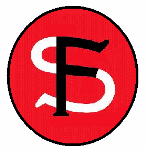
|
Record:
75-87
(-8)
10th in Batting -
6th in Pitching
Stud:
Thurmon Munson (.311-12-56)
Dud:
Mike Hedlund (2-6, 4.88)
Top Rookie:
Don Hood (4-2, 2.54)
Web of Mediocrity
In 1973, San
Francisco repeated its 1972 season by starting out
strong and then fading out of contention. The Spiders
began the season by going 24-17, just a game behind the
eventual division champion Chicago Colts, but the team
went 51-70 the rest of the way. Unlike '72, however, you
could see the Spiders' fall from grace coming a mile
away. San Francisco's early-season success was almost
entirely on the shoulders of two strong starting
pitchers (Bob Moose and Fergie Jenkins) and three
position players (OF Richie Zisk, C Thurman Munson, and
SS Mark Belanger). Unless other players stepped up their
games, there was no way the team could continue to win
at that pace. Needless to say, nobody stepped up.
In a Sporting News interview before the 1973 season
began, Spiders GM Jeff Tonole identified a handful of
key players that needed to perform well for the Spiders
to succeed -- SP Dick Bosman, Zisk, 3B Darrell Evans,
and OFs Lou Brock and Jimmy Wynn. Only Zisk delivered
the goods -- the Rookie of the Year candidate put up
solid numbers (.289/.368/.797, 14 HR, 60 RBI, 67 R) that
could have been even better if he hadn't missed a month
due to injury. Bosman blew out his elbow in his first
start and was lost for the season; Evans hit .209 and
had 3 fewer HRs in 157 games than he hit in 93 games the
previous season; Brock led the league in SBs for the
11th consecutive year but posted career lows in BA,
OBP, R, and RBI; and Wynn -- a free agent acquired to
provide strong defense and a solid bat against
left-handed pitching -- hit below .200 and batted worse
against lefties than righties.
Besides Zisk,
Munson had a spectacular season -- his .311 average was
fourth-best in the league and he scored a career- and
team-high 80 runs -- and OF Larry Hisle hit 28 HR and 92
RBI while boosting his BA by 15 points. Otherwise, the
San Francisco offense was stagnant. Belanger hit .326
through May 15 but hit .222 the rest of the way, while
the 1B platoon of John Mayberry and Lee May hit
.241/.301/.707 with disappointing HR and RBI totals. The
end result was a team ranked 10th in most of the major
offensive categories.
Pitching, a historical
strength in the City by the Bay, also underperformed in
1973. The bright spots were perennial Cy Young candidate
Moose (16-8, 3.11, 1.09) -- though even he faded down
the stretch (0-3, 5.86 ERA in September) -- and Jenkins
(15-14, 2.99, 1.01), who led the team in ERA and WHIP
and was third in the league in Ks. The rest of the
starting staff, however, left much to be desired -- Mike
Hedlund was demoted to long reliever and Luis Tiant was
sent to the minors because of their poor performances as
starters, and Jim Ray (who took Bosman's spot in the
rotation after years as a reliever) pitched decently
until the long innings began to take their toll on his
arm (6.95 ERA in August and September). The bullpen was
even worse, though it improved during the last two
months of the season as long-time Spider relievers Clay
Carroll and Paul Lindblad, along with youngster Balor
Moore, were all sent down to AAA for their prodigious
suckitude, while rookies Terry Forster and Don Hood were
lights-out in August and September (a combined 1.68
ERA).
|
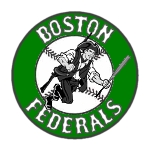
|
Record:
74-88
(-7)
5th in Batting -
11th in Pitching
Stud:
Orlando Cepeda (.279-38-106)
Dud:
Jim Rooker (6-5, 6.06)
Top Rookie:
Roric Harrison (4-6, 4.08)
|
|
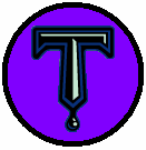
|
Record:
67-95
(0)
11th in Batting -
12th in Pitching
Stud:
Rod Carew (.310-9-68)
Dud:
Mickey Lolich (3-13, 5.25)
Top Rookie:
Randy Jones (11-6, 3.91)
The 1973 season was
another tough one for the Texans with them again posting
the league’s worst record. As is
generally the case with the Texans their pitching is
terrible. Gaylord Perry
underperformed and was sent to the minors for a large
portion of the year. One of the few
bright spots was Pat Jarvis who ended up being the
workhorse of the staff with 8 complete games on the
season. SP Randy Jones also pitched well in limited time
with the team and looks to be developing into a solid
mid-rotation SP. SP Dick Tidrow has
really not merited his selection in the first round of
last year’s draft.
Probably the most
surprising area of ineptitude in Dallas was the lack of
production on the offensive side, sporting the league’s
11th best squad in batting despite a number of alleged
offensive stars. In fairness they
were hampered by injuries to Bob Bailey and Cesar Cedeno,
but with all the emphasis that has been placed on this
team’s offense this lack of production is inexcusable.
Dallas has one of the youngest teams in the league
and has some time to get going but it seems as though we
say that every year. Hopefully some of the later picks
last year (Tanana, etc) will continue to develop and of
course they have another high draft pick this year.
Rumor has it the Texans are looking to shake
things up a bit this off-season but only time will tell
if they can get this pathetic franchise back on track.
|
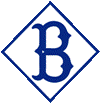
|
Record:
70-92
(+9)
4th in Batting -
9th in Pitching
Stud:
Dick McAuliffe (.302-20-75)
Dud: Ray
Lamb (4-10, 6.90)
Top Rookie: Mike Schmidt
(.261-15-67), Elias Sosa (7-9, 2.95)
Nothing is easy, you'll find. So says Ian Anderson, and after 1973 in charge of a rebuilding
Brooklyn side, I am inclined to agree--90+ losses, the
league's biggest Pythagorean underperformer, a whopping
15 losses from the closer position, 13 games under .500
in one-run games, and the least power of any team on the
circuit. Life's a bitch, and then you go manage an
expansion team.
But there are some positives
shining through the gloom. After two consecutive years
of finishing 11 and 12, respectively, in runs scored and
runs allowed, the screaming bats jumped to 4 and 9.
Attempts to address the utter lack of average, power,
and walks were successful on two of three fronts,
powered by a truly epic season from Dick McAuliffe and a
sweet debut from Schmidt. And while this is
oversimplifying, many of the team's problems relate to a
single position--closer, where Goose is developing into
a potential future studler. Bring on Joaozinho.
|
|
|
LEAGUE AWARDS |
|
MOST VALUABLE PLAYER |
CY YOUNG AWARD |
ROOKIE OF THE YEAR |
GOLD GLOVE AWARD |
ALL-UL TEAM |
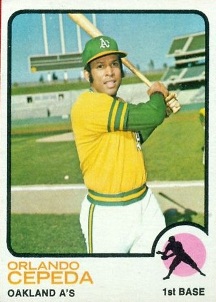 |
|
Orlando Cepeda, BOS
.279-38-106
.848 OPS |
|
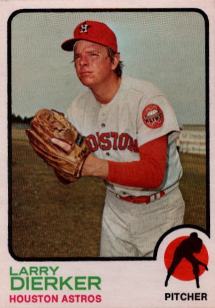 |
|
Larry Dierker, LA
18-1
2.30 227 K |
|
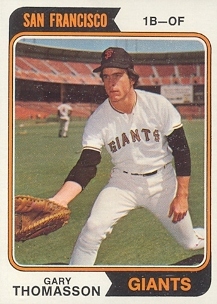 |
|
Gary Thomasson, LA
.257-19-60 .799
|
|
|
C |
Ray Fosse, WAS |
|
1B |
Steve Garvey, MAN |
|
2B |
Bobby Grich, DET |
|
3B |
Mike Schmidt, BRO |
|
SS |
Chris Speier, LA |
|
LF |
Bernie Carbo, WAS |
|
CF |
Amos Otis, CHI |
|
RF |
Reggie Jackson, DET |
|
P |
Bill Gogolewski, BRO |
|
|
|
|
|
|
|
|
|
|
|
C |
Thurmon Munson, SF (1) |
|
1B |
Orlando Cepeda, BOS (5) |
|
2B |
Bobby Grich, DET (1) |
|
3B |
Sal Bando, ATL (2) |
|
SS |
Dick McAuliffe, BRO (4) |
|
LF |
Ken Singleton, LA (2) |
|
CF |
Larry Hisle, SF (1) |
|
RF |
Ken Henderson, LA (2) |
|
SP |
Larry Dierker, LA (1) |
|
SP |
Don Wilson, WAS (1) |
|
SP |
Jon Matlack, STL (1) |
|
RP |
Pedro Borbon, LA (1) |
|
|
|
FINANCES |
|
ATTENDANCE |
TOTAL REVENUE |
PLAYER EXPENSES |
NET PROFIT |
|
1973 ('000) |
Change |
|
Cleveland |
2,953 |
1,004 |
|
Brooklyn |
2,937 |
1,093 |
|
Atlanta |
2,639 |
592 |
|
Chicago |
2,636 |
183 |
|
Washington |
2,574 |
-2 |
|
Detroit |
2,456 |
-283 |
|
St. Louis |
x2,260 |
-384 |
|
Boston |
2,440 |
-62 |
|
Los Angeles |
x2,140 |
357 |
|
San Francisco |
1,995 |
-157 |
|
Manhattan |
x1,705 |
-212 |
|
Dallas |
1,549 |
-366 |
|
Total
|
29,150 |
1,763 |
|
Average
|
2,357 |
+6.6%
|
|
|
1973 ('000) |
Change |
|
Chicago |
81.03 |
4.49 |
|
Cleveland |
77.81 |
12.23 |
|
Boston |
70.91 |
-4.15 |
|
Washington |
70.85 |
-0.01 |
|
Brooklyn |
69.90 |
9.84 |
|
Atlanta |
69.50 |
5.93 |
|
Los Angeles |
68.14 |
3.94 |
|
Detroit |
68.01 |
-2.84 |
|
San Francisco |
67.67 |
0.26 |
|
St. Louis |
66.70 |
-3.85 |
|
Manhattan |
62.65 |
-1.95 |
|
Dallas |
60.60 |
-3.66 |
|
Total
|
833.77 |
20.23 |
|
Average
|
69.48 |
2.5%
|
|
|
1973 ('000) |
Change |
|
Chicago |
72.88 |
-0.84 |
|
Cleveland |
71.04 |
1.91 |
|
Washington |
68.74 |
2.23 |
|
Boston |
68.68 |
-10.23 |
|
Los Angeles |
64.67 |
0.90 |
|
Atlanta |
64.46 |
3.90 |
|
San Francisco |
62.80 |
5.70 |
|
Dallas |
62.31 |
2.22 |
|
St. Louis |
61.15 |
-8.37 |
|
Detroit |
60.97 |
-7.79 |
|
Manhattan |
58.90 |
-17.09 |
|
Brooklyn |
52.82 |
-9.63 |
|
Total
|
769.42 |
-37.09 |
|
Average
|
64.12 |
-4.6%
|
|
|
1973 ('000) |
Change |
|
Brooklyn |
17.08 |
19.47 |
|
Chicago |
8.15 |
5.33 |
|
Detroit |
7.04 |
4.95 |
|
Cleveland |
6.77 |
10.32 |
|
St. Louis |
5.55 |
4.52 |
|
Atlanta |
5.04 |
2.03 |
|
San Francisco |
4.87 |
-5.44 |
|
Manhattan |
3.75 |
15.14 |
|
Los Angeles |
3.47 |
3.04 |
|
Boston |
2.23 |
6.08 |
|
Washington |
2.11 |
-2.24 |
|
Dallas |
-1.71 |
-5.88 |
|
Total
|
64.35 |
57.32 |
|
Average
|
5.36 |
815%
|
|
|
|
LEADERBOARDS |
|
BATTING AVERAGE
|
HOME RUNS
|
RBI
|
VORP
|
RUNS/GAME
|
|
Joe Torre, ATL
|
.324
|
|
Steve Garvey, MAN
|
.317
|
|
Graig Nettles, STL
|
.314
|
|
Thurmon Munson, SF
|
.311
|
|
Rod Carew, DAL
|
.310
|
|
Dick McAuliffe, BRO
|
.302
|
|
Bill Russell, ATL
|
.301
|
|
Carl Taylor, CHI
|
.300
|
|
Willie Crawford, DAL
|
.295
|
|
Gene Clines, BRO
|
.291
|
|
|
|
|
|
|
|
|
Orlando Cepeda, BOS
|
38
|
|
Rico Petrocelli, BOS
|
33
|
|
Ken Henderson, LA
|
31
|
|
Cecil Cooper, CLE
|
28
|
|
Larry Hisle, SF
|
28
|
|
Tony Perez, DET
|
27
|
|
Joe Torre, ATL
|
27
|
|
Reggie Jackson, DET
|
26
|
|
Sal Bando, ATL
|
25
|
|
Bobby Bonds, DET
|
25
|
|
|
|
|
|
|
|
|
Orlando Cepeda, BOS
|
106
|
|
Sal Bando, ATL
|
104
|
|
Tony Perez, DET
|
103
|
|
Cecil Cooper, CLE
|
99
|
|
Carlos May, CHI
|
99
|
|
Joe Torre, ATL
|
98
|
|
Mike Epstein, LA
|
95
|
|
Ron Santo, LA
|
94
|
|
Larry Hisle, SF
|
92
|
|
Ron Blomberg, WAS
|
89
|
|
Ollie Brown, BRO
|
89
|
|
Ken Singleton, LA
|
89
|
|
|
Dick McAuliffe, BRO
|
66.4
|
|
Joe Torre, ATL
|
55.4
|
|
Carl Taylor, CHI
|
54.9
|
|
Ken Henderson, LA
|
54.9
|
|
Frank Robinson, WAS
|
47.4
|
|
Rod Carew, DAL
|
45.2
|
|
Ron Santo, LA
|
44.5
|
|
Bernie Carbo, WAS
|
40.2
|
|
Graig Nettles, STL
|
40.1
|
|
Rico Petrocelli, BOS
|
39.6
|
|
|
|
|
|
|
|
|
|
ATLANTA
|
4.8
|
|
|
DETROIT
|
4.5
|
|
|
LOS ANGELES
|
4.4
|
|
|
BROOKLYN
|
4.1
|
|
|
BOSTON
|
4.1
|
|
|
WASHINGTON
|
4.0
|
|
|
MANHATTAN
|
4.0
|
|
|
CLEVELAND
|
3.9
|
|
|
CHICAGO
|
3.9
|
|
|
SAN FRANCISCO
|
3.8
|
|
|
DALLAS
|
3.8
|
|
|
ST. LOUIS
|
3.7
|
|
|
EARNED RUN AVERAGE
|
WINS
|
STRIKEOUTS
|
VORP
|
RUNS ALLOWED/GAME
|
|
Larry Dierker, LA
|
2.30
|
|
J.R. Richard, CLE
|
2.35
|
|
Don Wilson, WAS
|
2.41
|
|
Jon Matlack, STL
|
2.57
|
|
Rick Reuschel, CLE
|
2.66
|
|
Doc Medich, STL
|
2.75
|
|
Fritz Peterson, LA
|
2.77
|
|
Phil Niekro, LA
|
2.78
|
|
Wilbur Wood, CHI
|
2.78
|
|
Bill Singer, CHI
|
2.84
|
|
|
|
|
|
|
|
|
Bill Singer, CHI
|
20
|
|
Jon Matlack, STL
|
19
|
|
Fritz Peterson, LA
|
19
|
|
Don Wilson, WAS
|
19
|
|
Larry Dierker, LA
|
18
|
|
Clay Kirby, WAS
|
17
|
|
Rick Reuschel, CLE
|
17
|
|
Dave Roberts, LA
|
17
|
|
Vida Blue, BRO
|
16
|
|
Tom Bradley, ATL
|
16
|
|
Bob Moose, SF
|
16
|
|
Ron Reed, ATL
|
16
|
|
|
Don Wilson, WAS
|
253
|
|
J.R. Richard, CLE
|
249
|
|
Fergie Jenkins, SF
|
239
|
|
Bert Blyleven, BOS
|
236
|
|
Steve Carlton, ATL
|
229
|
|
Larry Dierker, LA
|
227
|
|
Andy Messersmith, WAS
|
220
|
|
Bill Singer, CHI
|
210
|
|
Bob Moose, SF
|
203
|
|
Jon Matlack, STL
|
200
|
|
|
|
|
|
|
|
|
Larry Dierker, LA
|
65.3
|
|
Jon Matlack, STL
|
57.9
|
|
J.R. Richard, CLE
|
57.7
|
|
Fritz Peterson, LA
|
53.8
|
|
Don Wilson, WAS
|
49.8
|
|
Rick Reuschel, CLE
|
48.0
|
|
Fergie Jenkins, SF
|
45.3
|
|
Phil Niekro, LA
|
44.2
|
|
Doc Medich, STL
|
43.5
|
|
Steve Rogers, MAN
|
41.7
|
|
|
|
|
|
|
|
|
|
CHICAGO
|
3.4
|
|
|
CLEVELAND
|
3.5
|
|
|
LOS ANGELES
|
3.6
|
|
|
WASHINGTON
|
3.7
|
|
|
ST. LOUIS
|
3.9
|
|
|
SAN FRANCISCO
|
4.1
|
|
|
DETROIT
|
4.3
|
|
|
MANHATTAN
|
4.3
|
|
|
BROOKLYN
|
4.4
|
|
|
ATLANTA
|
4.5
|
|
|
BOSTON
|
4.5
|
|
|
DALLAS
|
4.8
|
|
double arrows
indicate
moves of 3+ places
|
|
|
|
AWARDS & MILESTONES |
|
BATTER of the MONTH
|
PITCHER of the MONTH
|
ROOKIE of the MONTH
|
MILESTONES
|
|
APR
|
Ken Henderson, LA |
|
MAY
|
Joe Torre, ATL |
|
JUN
|
Ken Henderson, LA (2) |
|
JUL
|
Amos Otis, CHI |
|
AUG
|
Orlando Cepeda, BOS |
|
SEP
|
Bobby Grich, DET |
|
|
APR
|
Bob Moose, SF |
|
MAY
|
Bill Singer, CHI |
|
JUN
|
Andy Messersmith, WAS |
|
JUL
|
Jon Matlack, STL |
|
AUG
|
Rick Reuschel, CLE |
|
SEP
|
Fergie Jenkins, SF |
|
|
APR
|
Mike Schmidt, BRO |
|
MAY
|
Jorge Orta, CLE |
|
JUN
|
Gary Thomasson, LA |
|
JUL
|
Jorge Orta, CLE |
|
AUG
|
Ken Griffey, MAN |
|
SEP
|
Steve Rogers, MAN |
|
Bill Singer,
CHI
20-win season
(3rd of career, 1st since
1970)
Joe Torre, ATL
5th batting title
#2 all-time (1 behind Granny
Hamner)
Orlando Cepeda,
BOS
HR and RBI title
(record 5th HR title, 3rd HR
title tied for 1st)
GM Doug Aiton
15
seasons, 1,000 games, 10,000 runs
|
|
PLAYER of the WEEK
|
|
4/9
|
Graig Nettles, STL |
|
4/16
|
Tony Perez, DET |
|
4/23
|
Chris Chambliss, DAL |
|
4/30
|
Graig Nettles, STL (2) |
|
5/7
|
Ken Singleton, LA |
|
5/14
|
Billy Williams, DET |
|
5/21
|
Joe Torre, ATL |
|
5/28
|
Rico Petrocelli, BOS |
|
|
|
|
|
6/4
|
Bernie Carbo, WAS
|
|
6/11
|
Orlando Cepeda, BOS
|
|
6/18
|
Amos Otis, CHI
|
|
6/25
|
Ken Henderson, LA
|
|
7/2
|
Don Demeter, CLE
|
|
7/9
|
Joe Morgan, ATL
|
|
7/16
|
Jorge Orta, CLE
|
|
7/23
|
Bobby Valentine, DET
|
|
7/30
|
Roy Foster, ATL
|
|
|
8/6
|
Ron Santo, LA
|
|
8/13
|
Orlando Cepeda, BOS
|
|
8/20
|
Joe Torre, ATL (2)
|
|
8/27
|
Joe Torre, ATL (3)
|
|
9/3
|
Boog Powell, STL
|
|
9/10
|
Dick Allen, DET
|
|
9/17
|
Joe Rudi, WAS
|
|
9/24
|
Bobby Grich, DET
|
|
|
|
|
|
|
|